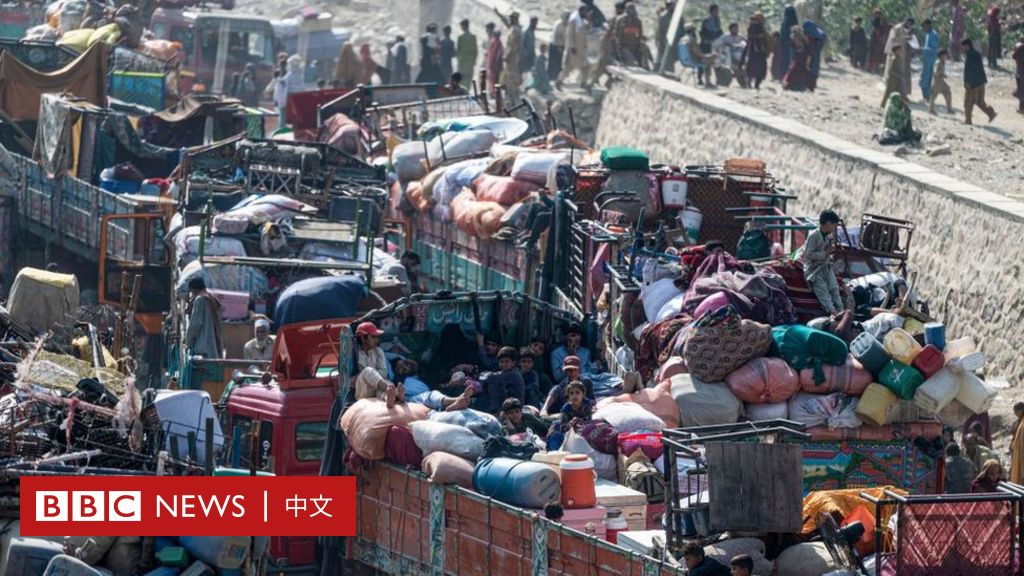Thousands of Afghans in Pakistan rush to border as deadline looms
Refugees in Pakistan are hurrying to the country’s border with Afghanistan, hoping to leave before the November 1 deadline set by the Pakistani government. Pakistan has issued an ultimatum for 1.7 million undocumented foreigners, mostly Afghans, to leave the country by Wednesday or face arrest and deportation. The looming deadline has caused panic among many Afghans who have sought refuge in Pakistan after the Taliban regained power in 2021.
The deadline officially expired at midnight on Wednesday, but Pakistani media reports suggest that refugees who are leaving the country can continue their journey on that day. However, the situation remains uncertain for those who are forced to leave. “If we are forced to leave Pakistan, where will we go?” questioned one young woman. Many of these refugees, like Sadia, came to Pakistan to access education after the Taliban banned women from attending school in Afghanistan.
Tensions between Pakistan and Afghanistan have escalated in recent years due to an increase in cross-border attacks, which Islamabad blames on militants based in Afghanistan. The Taliban government denies providing sanctuary to such militants and deems the deportation of undocumented Afghans as “unacceptable.” The strained relations have led to this crackdown on refugees in Pakistan.
Large numbers of refugees have been attempting to leave Pakistan voluntarily, with trucks arriving at the Afghan border loaded with clothing and furniture. According to Pakistan, nearly 200,000 Afghans have already left the country as of Monday. This exodus is driven by fear of arrest and human rights violations if they stay in Pakistan.
The United Nations human rights office has called on Pakistani authorities to halt the deportations to prevent a “humanitarian catastrophe.” The UN report states that eight out of 10 people leaving Pakistan cited fears of being arrested if they stayed. However, Pakistan’s economic crisis and its loss of patience with refugees have contributed to this strict stance. The Taliban’s severe repression of women’s rights in Afghanistan further compounds the dire situation for Afghan refugees.
Afghan singer Sohail, who fled Kabul with his family after the Taliban takeover, said, “As a musician, I cannot live in Afghanistan.” The Taliban’s ban on music and its restrictions on women’s freedoms have left many Afghans with no choice but to leave. The Taliban, however, said it has established committees to provide basic services to returning Afghans.
Pakistan has been a host to hundreds of thousands of Afghan refugees for decades. According to the United Nations, approximately 1.3 million Afghans are registered as refugees in Pakistan, with an additional 880,000 obtaining legal residence status. However, Pakistani authorities claim that another 1.7 million people are staying in the country “illegally.” The United Nations estimates the number of undocumented Afghans in Pakistan to be over 2 million.
The Pakistani government’s deportation order comes as a response to increased violence near its border with Afghanistan, which it attributes to Afghan militants. Pakistan’s Interior Minister Sarfraz Bugti stated that 14 out of 24 suicide bombings in Pakistan this year were carried out by Afghans. While the crackdown is not targeting a specific ethnic group, it primarily affects Afghans.
The situation remains tense as Afghan refugees face an uncertain future in the wake of the November 1 deadline. As the deportation process unfolds, international attention is increasingly focused on the plight of these refugees and the necessity for a humanitarian response.
